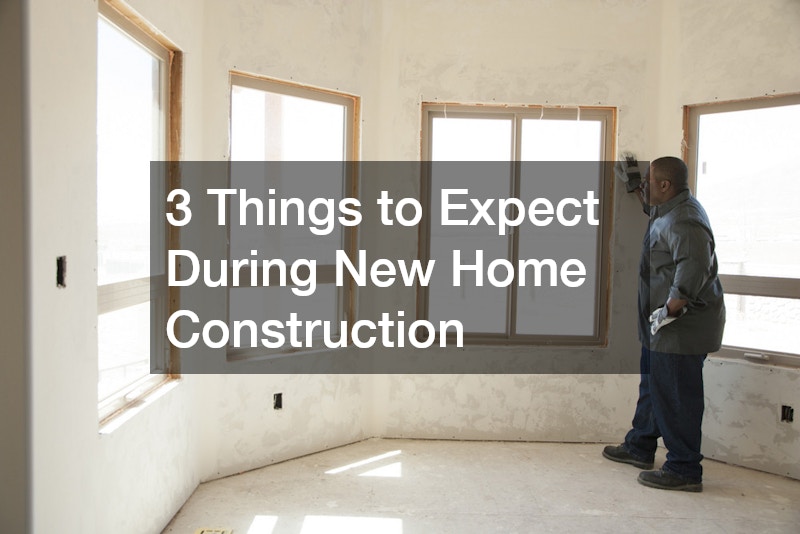
Building a new home is an exciting journey that involves planning, decision-making, and anticipation. Whether you're a first-time builder or looking to construct your dream home, knowing what to expect can help alleviate stress and ensure a smoother experience. In this article, we will explore three crucial aspects of the new home construction process to better prepare you for what lies ahead.
The construction timeline for a new home typically ranges from six months to over a year, depending on the size and complexity of the project. Initial phases include site preparation and foundation work, followed by framing, electrical, and plumbing installations.
Video Source
By understanding each phase, homeowners can anticipate what comes next and better plan their move-in date.
During the construction process, it is important to maintain regular communication with your builder to stay informed about progress. Keeping an open line of communication allows for early detection of potential issues, providing ample time for adjustments. Regular updates from your builder will also help manage expectations and ensure a smooth construction experience.
Numerous factors can impact the overall construction timeline, including weather conditions, supply chain disruptions, and permit delays. Weather, in particular, can affect outdoor work, causing delays that must be accounted for in planning. Understanding these variables helps manage expectations and avoid surprises.
Permits and inspections are essential elements that contribute to the timeline, as they are necessary to meet legal requirements. Inspections ensure that specific phases meet safety and building standards, but they can also result in delays if issues are found. It's beneficial to have a well-organized process for handling these administrative tasks promptly.
For successful home construction, anticipating potential delays and implementing strategies to mitigate them can make a significant difference. One vital strategy is building flexibility into the schedule, allowing time for unforeseen events. Proactive problem-solving will help maintain overall project momentum.
Estimating costs accurately from the outset of your project helps set a realistic budget and prevent financial strain. Begin by researching average costs in your area and obtaining quotes from multiple contractors. Including a contingency fund in your budget is crucial for unexpected expenses.
The budget should encompass all aspects of construction, from materials and labor to permits and design fees. Consider all components thoroughly to avoid underestimation. A detailed budget enables better decision-making and resource allocation throughout the project.
When building a new home, some costs may not be immediately apparent, catching homeowners off guard. Hidden fees like site preparation, utility hook-ups, and landscaping can accumulate quickly. To avoid surprises, homeowners should include these elements in their initial budgeting and consult with experienced builders.
Another way to mitigate hidden costs is by thoroughly reviewing contracts and discussing potential additional expenses with your builder. Identifying these elements early and planning for them proactively minimizes their impact on the project's bottom line. Open communication with your building team ensures alignment on costs and quality expectations.
Staying informed and exploring alternative solutions can further help in managing costs. Engaging with knowledgeable professionals encourages value engineering opportunities, enabling you to get the most from every investment. Prioritizing elements of the home that are essential to your vision can help make cuts without sacrificing quality.
Finding the right builder is a crucial step that involves thorough research and verifying credentials and references. Delve into the builder's portfolio to understand their style and quality of work, ensuring alignment with your vision. A reliable builder will have a history of satisfied clients willing to share their experiences.
Another significant step is conducting interviews with prospective builders to gauge their communication skills and responsiveness. Thoroughly vetting potential builders’ backgrounds helps ensure credibility and a successful, stress-free project. Confidence in your builder's abilities contributes to a smoother building process.
Requesting and following up on references provides firsthand insight into the builder's practices. Engaging with past clients offers additional peace of mind. Evaluating these interactions critically is key in selecting a builder who understands and respects your goals and expectations.
Scrutinizing the builder's contract is essential for understanding the terms and conditions of the construction process. A well-drafted contract details project timelines, costs, and responsibilities of both parties, providing a comprehensive guide for the project. Before signing, consult with a legal professional to ensure all terms are clear, fair, and enforceable.
Critical analysis of contract details protects homeowners from unforeseen fees and challenges. An effective contract minimizes risk by clearly outlining scopes of work, potential change order processes, and dispute resolution procedures. Awareness of these elements enhances trust and collaborative success.
Navigating the new home construction process can seem daunting, but by understanding the timeline, managing your budget, and selecting the right builder, you can lay a solid foundation for your project's success. Armed with this knowledge, you can approach your home build with confidence and excitement, ready to bring your vision to life. Thorough preparation and proactive engagement with each aspect of the process ensure a gratifying building experience culminating in the creation of your ideal home.
.